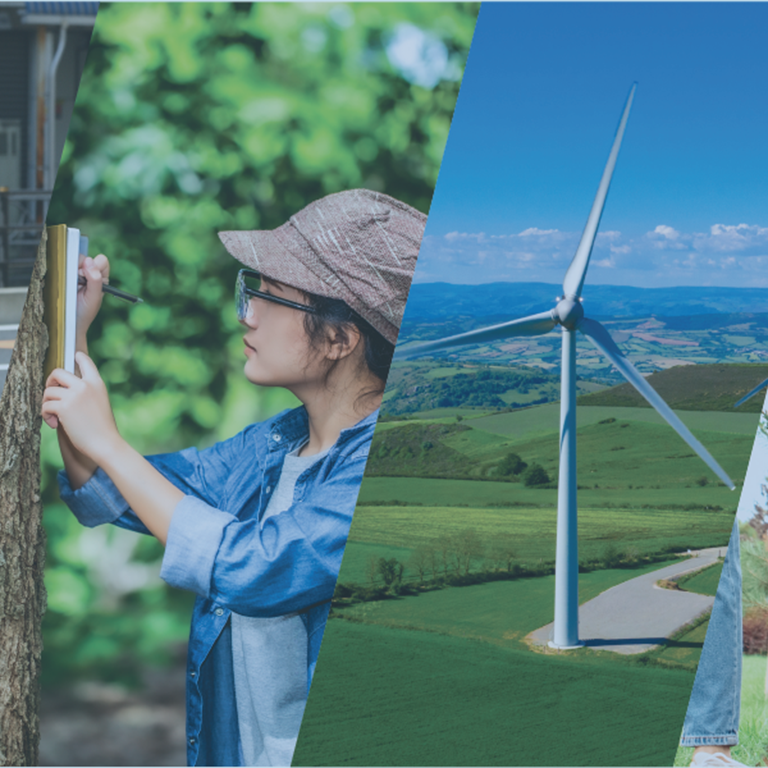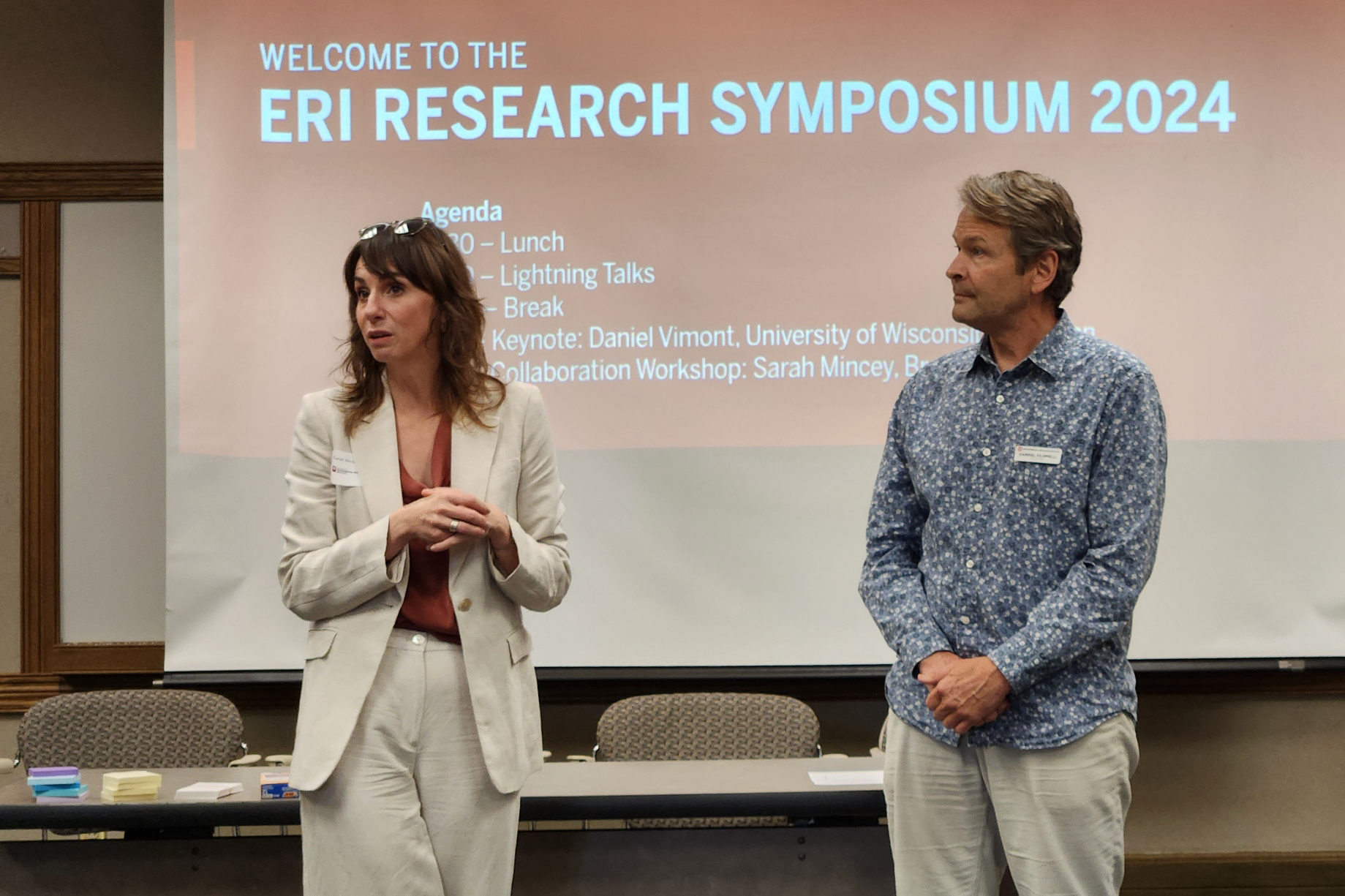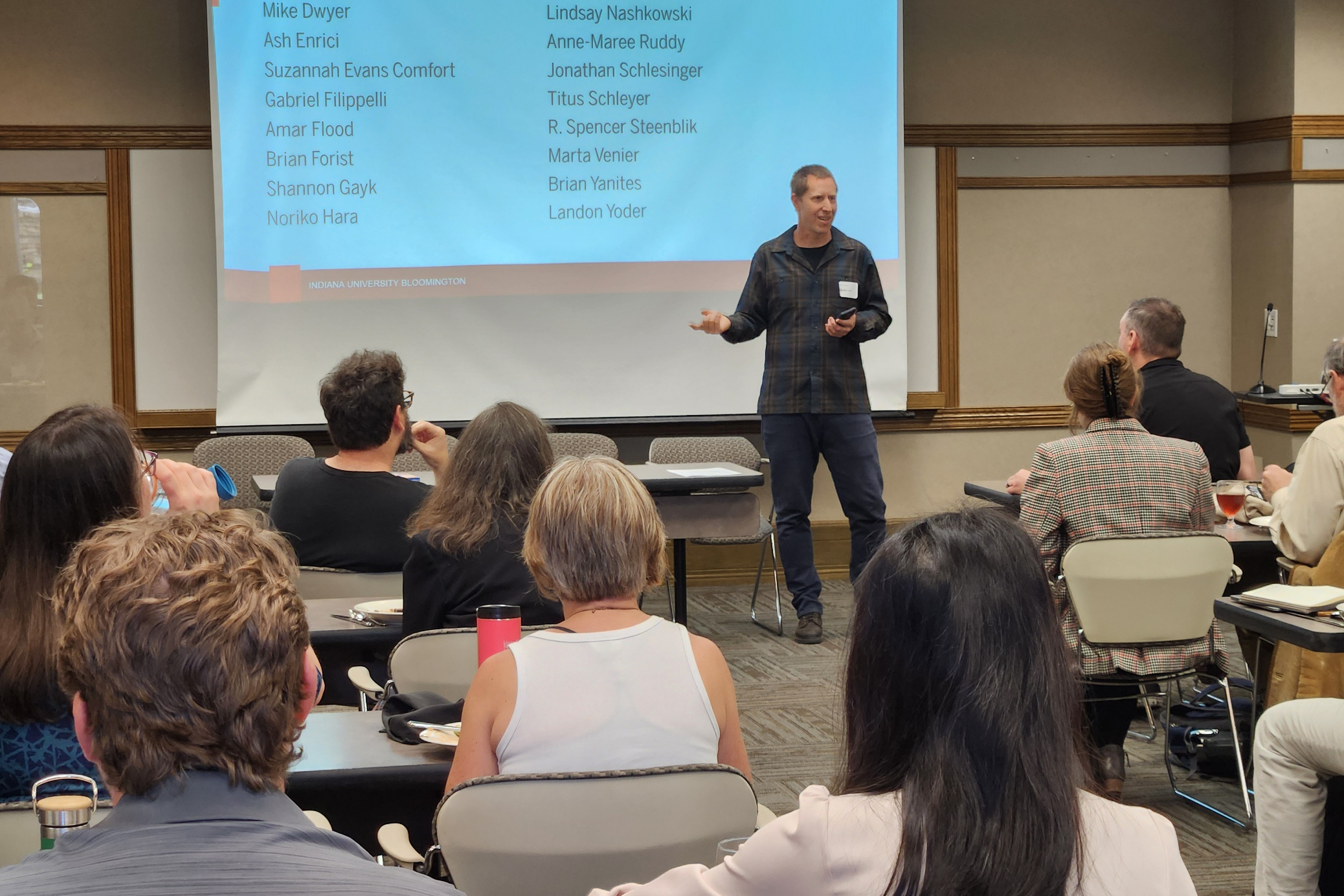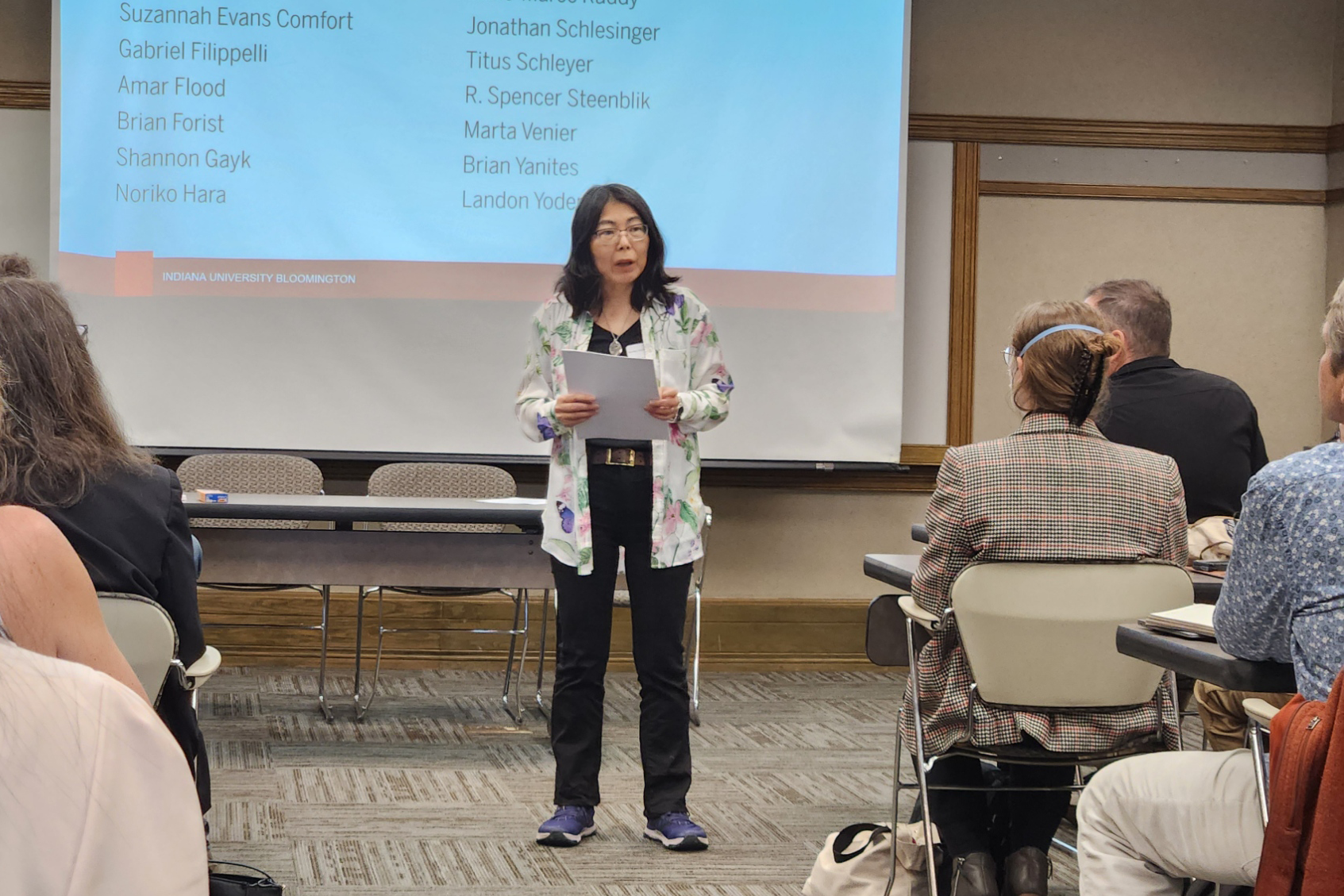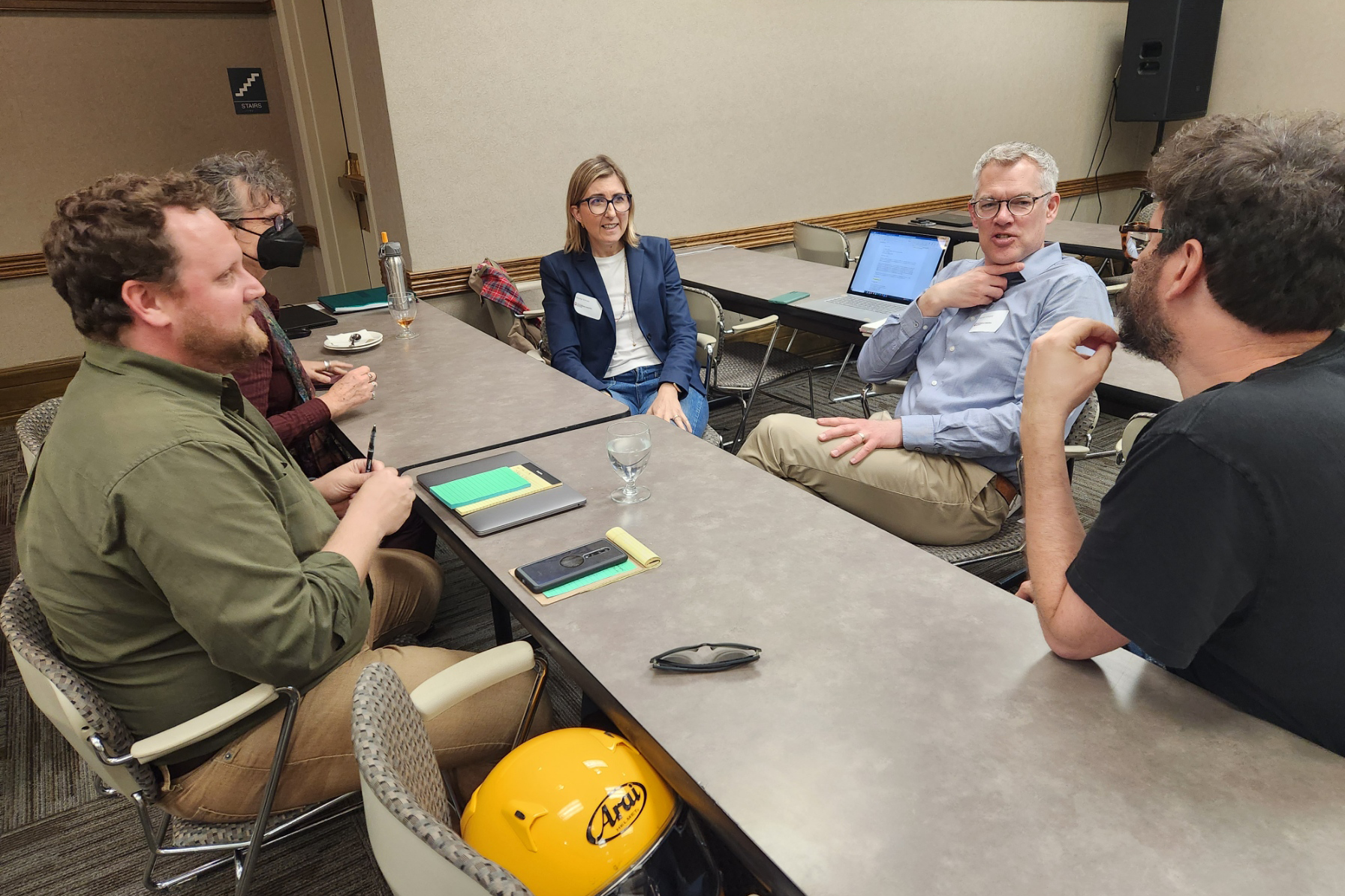On April 30, more than 50 students, faculty, and staff gathered at the Indiana Memorial Union for the Environmental Resilience Institute’s 2024 Research Symposium to discuss ongoing research in the environmental, climate, and sustainability space and identify strategies to encourage collaboration.
Fifteen attendees representing the Bloomington and Indianapolis campuses gave 3-minute “lightning talks” at the event, sharing their current research aims and projects. Topics ranged from science communication, to sustainability and climate planning, to the development of easy-to-use phosphate sensors for farmers. Attendees also participated in a brainstorming session on how faculty might better collaborate on climate-related research in the future.
“We know that IU faculty are leading a lot of incredible research that intersects with climate and resilience, but opportunities to share that work outside of their own specialized silos can be limited,” said ERI Managing Director Sarah Mincey. “Convening this event is one way ERI is stimulating new conversations around climate research at IU, conversations that could spark exciting interdisciplinary collaboration and help Hoosiers navigate our changing climate.”
Faculty who were unable to attend the event can hear about future events and research funding opportunities related to climate and resilience by subscribing to ERI’s newsletters and affiliates listserv.
Daniel Vimont, a climate researcher and director of the Nelson Institute for Environmental Studies’ Center for Climatic Research at the University of Wisconsin-Madison, presented at the symposium. Vimont’s talk focused on a successful organizational model he helped deploy through the Wisconsin Initiative on Climate Change Impacts (WICCI) to generate and share evidence-based information related to climate science and solutions tailored to the Badger State.
Similar to Indiana, Wisconsin’s warming climate is impacting residents’ health and the state’s economy due to impacts such as increased annual precipitation, more frequent extreme rainfall, and higher average temperatures. WICCI’s decentralized structure encompassing universities, state agencies, federal agencies, schools, tribal organizations, businesses, and non-profits, encourages sharing across organizations, Vimont said, and helps get the most up-to-date science in front of people making decisions on the ground.
Scroll through the slideshow below to see photos from the event.


